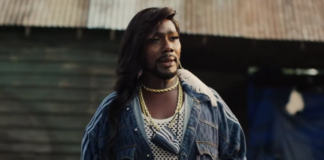During his time at ORU, Hartzler, now 23, assiduously concealed his sexual identity from school officials in order to avoid a punishment that would jeopardize his degree. In his junior year, he was summoned to a dean’s office after he was reported for having his boyfriend, who was not an ORU student, in his dorm room. Faced with the possibility of punishment and even expulsion from the university, Hartzler got an unexpected reprieve when Covid shut down the campus. He managed to avoid a series of “accountability meetings” with deans, move off campus and finish his degree in psychology remotely, graduating in May 2021.
Within three months of graduation, Hartzler joined a class-action lawsuit against the Department of Education, asking the court to strike down the religious exemption as a violation of the Establishment Clause of the First Amendment, and of the students’ equal protection rights. The complaint, filed in federal court in Oregon in 2021, recounts vivid details from the initial 33 plaintiffs. One plaintiff alleges authorities at Bob Jones University combed her social media and disciplined her for refusing to disavow her support for LGBTQ rights. A gay man alleges that Union University rescinded his offer of admission after discovering he was engaged to a man; another, who felt called to ministry and enrolled at Fuller Seminary, was expelled after only a few days because he is married to a man. A common theme, according to the complaint, is how school authorities examine students’ social media posts for evidence of their sexual orientation or gender identity, or their support for LGBTQ rights.
“At Union University, we believe that all persons have inherent dignity and thus should be treated with kindness and respect,” said a school spokesperson. “This dubious lawsuit is an ill-considered effort to erase religious schools by denying financially disadvantaged students the ability to attend the college of their choice. It’s a misguided attempt to discard a congressional enactment consistently respected and enforced by every presidential administration — both Democrat and Republican — for over four decades.” (Fuller Seminary and Bob Jones University did not respond to requests for comment.)
Paul Southwick, director of the Religious Exemption Accountability Project, which advocates for the rights of LGBTQ students at Christian colleges and universities, and counsel for the plaintiffs, says that even students who are not disciplined endure a culture of pervasive anxiety and fear. “These policies that criminalize their identities and behavior, it’s like this dark cloud hanging over their head,” Southwick said. “It causes them to have to remain in the closet, to conceal, to be super vigilant about their behavior.” At many of these universities, Southwick said, “your identity is forbidden.”
The Title IX religious exemption ensures that, despite historic advances in LGBTQ rights over the past decade, religious colleges and universities are not required to change their policies in accordance with those new laws — all while receiving the benefits of taxpayer-subsidized funding. According to the REAP complaint, religious colleges and universities that have the exemption received, in 2018 alone, a collective $4.2 billion in funding from the federal government. Much of this comes in the form of federal student loans and financial aid, but the pandemic brought even more aid as well. Oral Roberts University, for example, also received a $7.3 million award in 2020 under the CARES Act, and another $9.1 million under an Education Stabilization Fund intended to assist schools during the pandemic, according to a federal funding database. Without federal aid, many students could not afford to attend these schools. But to maintain the flow of federal money without the religious exemption, the schools would have to amend their policies, something they claim would eviscerate the Christian character of their institutions. (ORU did not respond to requests for an interview or for comment for this story.)
The REAP lawsuit arrives at a moment when the religious right is experiencing a surge in political power. The movement is poised to claim a major victory in its decades-long fight against abortion, and Republican legislatures and governors across the country are passing anti-LGBTQ laws such as Florida’s hotly debated law dubbed “Don’t Say Gay” by critics, banning LGBTQ books and criminalizing gender-affirming care for trans minors. But the lawsuit challenging the religious exemption represents a potential existential threat to a bedrock of the evangelical movement. Christian schools have trained the thinkers who have promoted and defended a legal strategy that dates back to the 1970s, when the early organizing of the modern religious right centered not on abortion but on shielding Christian K-12 schools and universities from requirements to comply with racial nondiscrimination policies. Christian schools lost the battle on race decades ago, but the core argument they use to perpetuate anti-LGBTQ policies is the same: For a secular government to require Christian educational institutions to comply with civil rights law is an unacceptable violation of their religious beliefs, regardless of the discriminatory impact on the students who attend them.








